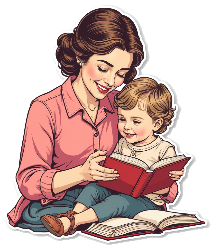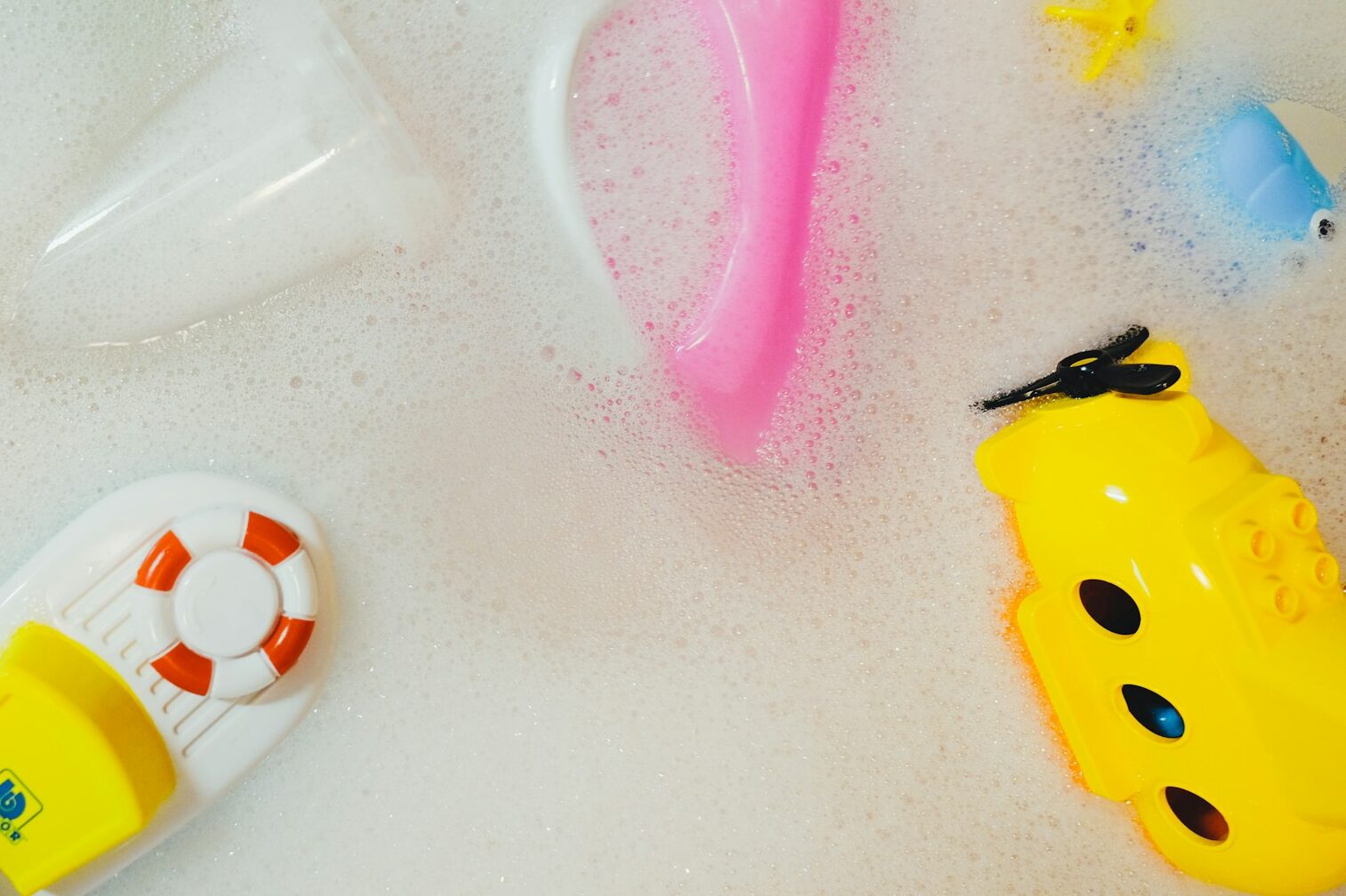It’s winter, and both of my children have been sick. We have a toddler and an almost 1-year-old, and they’ve been unwell for what feels like forever. Just when I think they’re starting to feel better, one of them starts up again. Between the coughing, vomiting, and runny noses, it’s been a rough stretch. I finally packed them up and took them to urgent care, worried that my toddler might have whooping cough. Thankfully, tests for COVID, flu (A and B), and whooping cough all came back negative. We left with a reassuring pat on the back and the advice to “keep doing what you’re doing.”
I know I’m not alone in this. When your little one is sick, it can feel overwhelming. Here are some tips and tricks that have helped make things a little easier.
1. Stock Up on Supplies
Having the right supplies on hand can make caring for a sick child a little easier. Make sure you’ve got these essentials ready:
- Thermometer: To monitor their temperature. We prefer the forehead kind—easy to use, and you can check their temp without waking them up.
- Wet Wipes or Tissues: Something soft for those runny noses.
- Nasal Aspirator: To help clear up congestion.
- Humidifier: To soothe sore throats and ease coughing.
- Golden Salve or Coconut Oil: For chapped lips, noses, and cheeks.
- Honey (for toddlers over one year old): Honey is known for its antimicrobial properties—nature’s golden, delicious medicine at its finest.
- Dr. Talbot’s Mucus and Cold Relief: A tried-and-true favorite in our family.
- Sore Throat Pops: A genius idea your toddler will love.
- Nebulizer: Helps to loosen mucus and breathe more easily.
2. Stay Hydrated
Keeping your child hydrated is essential during illness, especially when they’re throwing up.
DeeBee’s Popsicles
These popsicles contain no added sugars, artificial colors, or preservatives, making them perfect for hydration. It keeps little ones hydrated. It soothes sore throats. It’s good for morale.
Breast Milk
For babies, nurse on demand. If they’re throwing up, you can try pumping and offering smaller amounts, such as an ounce every 30 minutes, or even a tablespoon every 15 minutes, to help them keep fluids down.
Water
For toddlers, offer small amounts of water at regular intervals. Start with 1 oz every 30 minutes if they’re throwing up. If they’re not throwing up, be sure to offer water regularly.
Note: Always check with your doctor, but my main priority when my little ones are sick is to keep them comfortable, monitor their fever, and prevent dehydration.
3. Comfort Food
When your baby or toddler is sick, comfort food is essential. These meals are simple to make, soothing, and easy to digest.
Custard
A warm, sweet dish that’s rich in protein—perfect for when your baby or toddler isn’t feeling their best.
Ingredients:
- 1 cup milk
- 1 egg
- 1 Tbsp cornstarch
- 1 Tbsp maple syrup
Instructions:
- Combine milk, egg, and cornstarch in a pot. Bring to a boil while stirring continuously.
- Crack the egg into a separate bowl. Slowly mix some of the hot milk mixture into the egg, then return the egg mixture to the pot.
- Let it simmer until the mixture thickens.
Chicken Noodle Soup
A classic for a reason. This comforting, easy-to-digest dish is packed with nutrients. If your toddler only wants to eat the broth and noodles, that’s perfectly fine. For babies, I like to offer a slice of bread soaked in broth.
Ingredients:
- Chicken
- Carrots
- Celery
- Egg noodles
- Salt
Instructions:
- Add chicken, carrots, and celery to a crockpot. Cover with water and salt generously. Cook on high until the chicken is tender and fully cooked.
- Remove the chicken, set it aside, and add egg noodles to the crockpot. Cook until noodles are soft.
- Shred the chicken and return it to the crockpot. Taste and adjust salt. Serve with saltine crackers.
PS. These are your grandmother’s recipes, passed down with love. Add a pinch of this, a dash of that, and cook until it’s just right—just like Grandma would have. If you need more guidance, feel free to look up a recipe to help.
4. Rest – Let Them Sleep on You, Sleep In, and Take Extra Naps
When your little one is sick, let them rest as much as they need. Don’t worry about sticking to their usual sleep schedule. If you usually wake your toddler up, let them sleep in instead. Offer naps earlier and let them sleep longer after naps. For babies, let them take contact naps on you.
We’re usually strict about sleep schedules in our house, but when they’re sick, I let them sleep whenever and wherever they need. Let them stay in their pajamas all day—comfort is key.
5. Hot Baths and Steamy Showers
If your child doesn’t have a fever, give them a warm bath or shower. This helps with congestion and can be a soothing, quiet activity. It also keeps them contained and calm while providing some relief.
6. Put the House on Maintenance Mode
If possible, clear your schedule, your calendar, and your to-do list. At the end of each day, once my children are in bed, I try to:
- Empty and reload the dishwasher
- Wipe down sink, counters and table
- Sweep the floors
- Do a quick pick-up
- Wash and dry a load of laundry (folding can wait)
If that’s all that gets done, it’s okay. At least the house is in some kind of order, and I can tackle other chores when we’re back on our feet.
Laundry Tip:
Keep the washing machine empty so you can wash soiled clothes and linens as soon as they happen. Toss them straight into the washer to keep the laundry from piling up.
7. Prepare in Advance
Prepare as much as possible to make things easier during the day. If your little one is throwing up, have an extra set of sheets, blankets, pillows, washcloths, and pajamas outside their bedroom door. This way, if they get sick at night, you have everything ready for a quick clean-up and change of clothes.
If it helps, set out breakfast or pack a lunch the night before. Even if you’re staying home, having meals ready will free up your time, and hands, to tend to a sick child.
8. Don’t Forget About You
While caring for a sick little one, it’s easy to neglect yourself. Taking care of yourself is just as important as caring for your little one!
Don’t forget to:
- Take your vitamins
- Wash your hands frequently
- Get dressed in the morning, even if you’re staying home
- Go to bed early to make up for the extra night wakings
I hope these tips help make the sick days a little easier to manage. Remember, comfort and hydration are key, and when all else fails, lots of rest and cuddles can go a long way!




